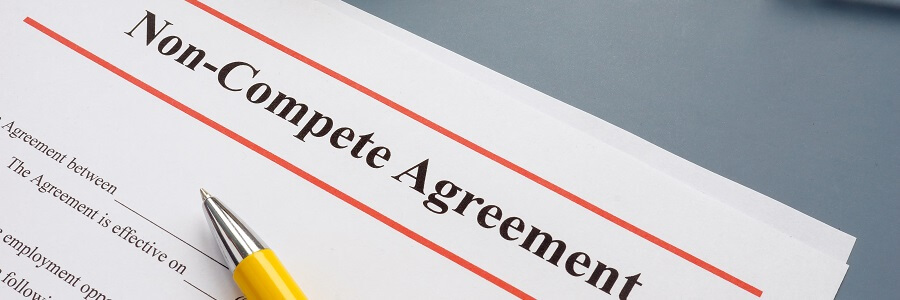Employer’s Guide to Managing Cannabis Use in the Workplace

Quick look: Cannabis legalization and changing perceptions in the U.S. have ignited a conversation regarding how employers are impacted. As they navigate evolving laws and employee expectations, they are leaning on expert guidance from PEOs to redefine workplace policies and regulations.
Cannabis laws in America are rapidly changing state by state, though cannabis use remains illegal on a federal level. However, it is now recreationally legal for adults in 18 states, and 39 states have legalized the use of marijuana for medical use. This shift in legislation is also changing the workplace, and employers are responding to it in different ways.
Despite what employees are legally able to do in their private lives, ensuring it doesn’t spill over to the workplace is another story. Yet, this area means navigating new territory – even though most company policies already have rules about substance use in place. It’s beneficial for employers to work with a professional employer organization (PEO) like ExtensisHR to create guidelines for when to implement testing during the pre-employment and employment process and how to approach cannabis-related impairment at work.
Record number of U.S. workers test positive
In 2022, Quest Diagnostics’s annual analysis showed the percentage of U.S. employees who tested positive for cannabis reached the highest level it’s ever recorded in 25 years. Of the more than six million tests analyzed for marijuana use, positive rates in the U.S. workforce increased to 4.3% in 2021 (from 3.9%), marking the highest percentage recorded by Quest during its 34 years of analyzing workplace drug use data.
However, many companies, especially those with high turnover rates, have stopped pre-employment marijuana testing because it inhibited their ability to attract enough job applicants. Since marijuana can stay in the body for up to 30 days, it can make drug testing an unreliable indicator of active impairment. Some employers who have maintained their pre-employment testing have since lowered the standard 10-panel drug test, a type of screening that checks for the presence of 10 different substances or classes of drugs in a person’s system.
How marijuana use impacts job safety
Rather than testing for general use, employers can seek to establish a system to implement reasonable cause testing. This can be applied to specific roles and departments, particularly where cannabis use in the workplace can lead to job safety issues.
THC in marijuana affects depth perception, reaction time, and other motor skills. For someone operating machinery (i.e. forklift operators, truck drivers, construction workers, roofers, etc.), these side effects can be fatal. Per a National Institute on Drug Abuse study, employees who tested positive for marijuana had 55% more industrial accidents, 85% more injuries, and 75% greater absenteeism compared to those who tested negative.
In light of the dangers, certain employees fall under federal regulations requiring testing for marijuana and other substances. Workers covered by Department of Transportation rules, such as trucking, mass transit, and airline and rail workers must be screened for drug and alcohol use if they’re in safety-sensitive jobs. But despite what the job description calls for, cannabis use in the workplace may also impact the bottom line by:
- Decreasing productivity
- Increasing workers’ compensation and unemployment compensation claims
- Leading to higher turnover
- Making companies susceptible to lawsuits
- Higher health insurance costs
- Impacting employee mental health
While marijuana may be regarded by many as a benign drug, the latest science suggests otherwise. Research published in recent years shows marijuana’s potentially harmful effects on several facets of physical and mental health. These include heart attacks linked to cannabis use disorder and ER visits as a result of cannabis-induced psychosis, to less severe but still troubling issues, such as greater sleep disturbance.
On the positive side, cannabis has been prescribed to reduce anxiety and may be an alternative, non-narcotic solution for employees who may be recovering addicts and cannot take other medicines. Either way, addressing cannabis use in the workplace must be clearly communicated and equitably enforced.
What to do if you believe someone at work is under the influence
When there is cannabis use in the workplace or someone is under the influence while at work, proper recourse must follow, with HR leading the conversation. If an HR representative is not available, it’s recommended that the most senior member of the organization address the situation and seek legal or professional guidance where appropriate. It’s important to have transparent company policies about marijuana use and subsequent violation protocols in place. This eliminates any potential or perceived bias and focuses on employee accountability and support.
Keep in mind, workers who use marijuana for medical use may make a request for reasonable accommodation. It’s best practice for employers to follow the American with Disabilities Act interactive processif such a request is made. Since marijuana is illegal on a federal level, this application may be tricky to understand, so having the support of a PEO is valuable to ensure the proper steps are followed.
Paving the path forward with a PEO
The laws, language, and differing company regulations regarding cannabis use in the workplace can start to become overwhelming. Employers must set aside their own personal bias about drug use and be informed as to what they are required to do by law. Having the support of an experienced, personable HR team eases this responsibility and provides clarity on how to develop and implement specific policies.
As more states legalize cannabis use, these policies will need to be enacted immediately, making a PEO partnership an essential part of the future planning. ExtensisHR offers an Employee Assistance Program(EAP), which provides employees free access to short-term counseling and resources to confidentially discuss personal issues and find customized solutions.
Additionally, as HR professionals well-versed in leading these types of conversations, ExtensisHR can educate employees about company marijuana-use policies and the repercussions for failed tests. They can also guide leadership on how to handle issues regarding cannabis use in the workplace and provide expertise to minimize risk and maintain compliance as they navigate state-specific drug policies.
Working with ExtensisHR provides employers full-service HR support to anticipate and adapt to these changes and create and communicate concrete plans. Our team provides personalized solutions designed to help your company grow. Contact us today to learn more.



